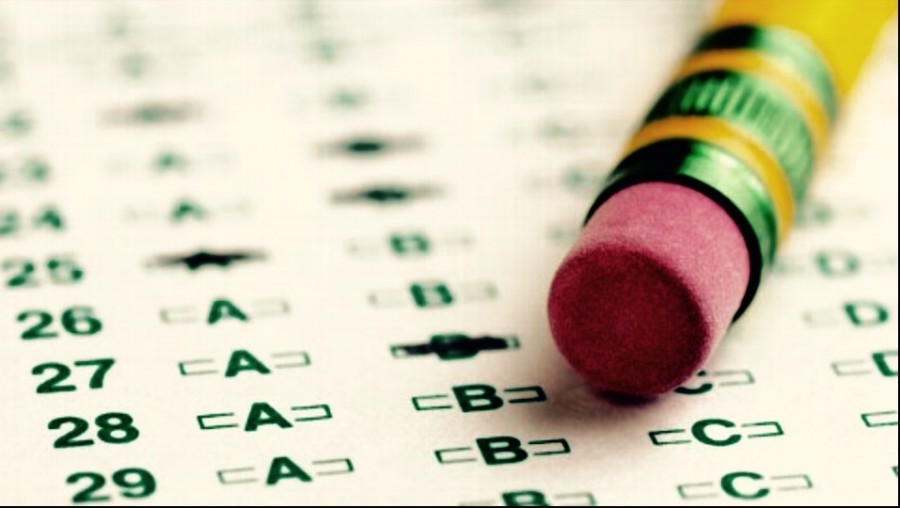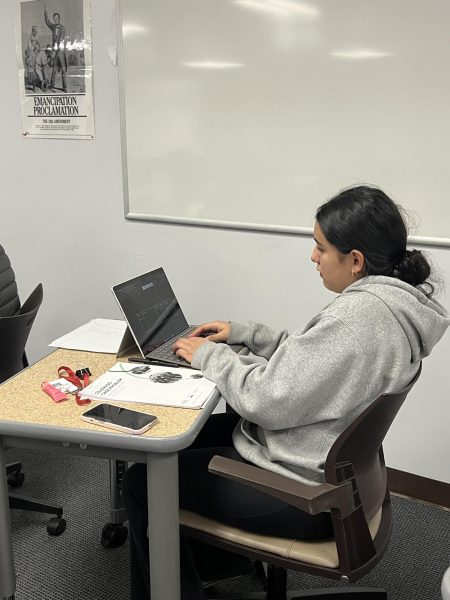The Freshmen Guide to Acing Finals
As the final grading period of the first semester is in full swing, the students of the RJ community are beginning to prepare for final exams, which will take place on December 15th, 16th, and 17th before Christmas break.
The seniors, juniors, and sophomores are well aware of how the final exams at Regis work. Having had the experience of taking these types of assessments, they are familiar with how to best prepare for them so that they can perform their best and show what they know come the time of the final exam. On the other hand, the freshmen class has not yet been exposed to the concept of semester finals prior to their high school career.
In order to help the freshmen become more comfortable with the idea of finals and in the interest of helping them prepare effectively for the exams, freshmen Afton Tanner and Madison Munger ask questions concerning finals to Reagan Shea and Lilly Butsch, who are sophomores and therefore experienced freshmen finals just last year.
“When should we start studying?”- “Don’t leave all of your studying for the last minute. That is probably the worst thing you can do. Not only will procrastination cause more unnecessary stress during finals week, but you won’t be able to retain any information if you cram it in all at once. Instead, start studying now; dedicate 30 minutes every night to reviewing certain subjects in order to ‘spread out’ your studying. By studying in bits and pieces, you will be able to review effectively since you will have the opportunity to be thorough and complete. When finals week does come, review a little bit for the test the night before; you should not study for more than 2 hours on nights before final exams (you want to give your mind a ‘rest’ and a chance to ‘power up’ before taking a final).”
“What are the best study tools?”- “Most teachers will give you a study guide, which will outline the main concepts and skills that you will need to know in order to perform well on the final. Using your study guide as a base, review old tests (look at the problems that you got right so you can familiarize yourself with the correct ideas, and also review the questions that you got wrong in order to understand why you got them wrong and how you can learn the valid answer), make notecards, review notes, study with your friends so that you can help/encourage each other, and ask teachers to help you better understand subjects and skills that are challenging for you. For each class, we suggest making a checklist of the things that will potentially be on the final. As you master each skill or idea, check it off so that you can remind yourself that you already know the material, and so that you don’t waste time studying things that you already know. Dedicate time to focusing on improving your weaknesses.” Students can use quizlet to make notecards and test themselves on terms and ideas.
“What’s the best way to deal with stress?”- “The best way to avoid stress is by being genuinely prepared for all of your finals before finals week arrives. You can achieve this by studying diligently for a little bit every night (starting now) and about 30 minutes on the night before the test itself, instead of saving all of your studying for the week of the exams. Also, be confident in yourselves! Know that if you study well and dedicate small amounts of time for review every day, your hard work will definitely pay off.”
“What are your recommendations for finals week itself?”- “When finals week does come, don’t panic: if you follow our advice and don’t procrastinate, you will be fine. However, there are some simple additional things that you can do during these three intense days to promote further readiness and overall better brain function:
1. Eat a healthy breakfast and have snacks to refuel your brain in between tests.
2. Get at least 8 hours of sleep on the nights before final tests.
3. Make sure you drink plenty of water to stay hydrated; having a headache or being thirsty while taking a test can be one of the worst feelings in the world, and pain/dehydration can reduce your focus levels.
4. Have everything ready the night before the test so that your morning routine doesn’t have any added stress. Make sure your calculator is fully charged; have your pencils, erasers, and pencil sharpeners ready; have a full water bottle available; know what you will have for breakfast in the morning; and eat a wholesome dinner.”
“Anything else?”- “You will do great!:)”






